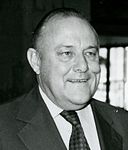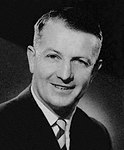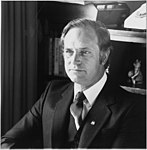New Zealand general election, 1981
|
|
|||||||||||||||||||||||||||||||||||||||||||||||||
|---|---|---|---|---|---|---|---|---|---|---|---|---|---|---|---|---|---|---|---|---|---|---|---|---|---|---|---|---|---|---|---|---|---|---|---|---|---|---|---|---|---|---|---|---|---|---|---|---|---|
|
|||||||||||||||||||||||||||||||||||||||||||||||||
|
|
|||||||||||||||||||||||||||||||||||||||||||||||||
|
All 92 seats for the New Zealand House of Representatives 47 seats were needed for a majority |
|||||||||||||||||||||||||||||||||||||||||||||||||
|
|||||||||||||||||||||||||||||||||||||||||||||||||
|
|||||||||||||||||||||||||||||||||||||||||||||||||
The 1981 New Zealand general election was a nationwide vote to determine the shape of the 40th New Zealand Parliament. It saw the governing National Party, led by Robert Muldoon, win a third term in office, but the opposition Labour Party, led by Bill Rowling, won the largest share of the votes cast.
Before the election, the National Party governed with 50 seats, while the opposition Labour Party held 40 seats. The Social Credit Party held two (one of which had been taken from National in a recent by-election). The National Party had won a landslide victory in the 1975 election, but in the 1978 election, although remaining in office, had lost ground. The style of Robert Muldoon's leadership was growing increasingly unpopular, both with his party and with the public, and there had been an abortive leadership challenge by Brian Talboys in 1980. Some commentators believed that the 1981 election would mark an end to Muldoon's government.
Some pundits have since claimed that the Springbok Tour increased votes for National in provincial electorates, despite the tour not being seen as a major election issue.
The opposition Labour Party was led by Bill Rowling, who had been leader of the party in the past two elections. While Rowling had performed poorly against Muldoon in 1975, and was generally viewed by the public as weak, he had gradually recovered a measure of public respect. In the previous election, Labour had won a plurality of the vote, but did not win a majority of the seats. Many believed that this time, Labour would manage to convert its support into seats, although that did prove not to be the case.
...
Wikipedia



